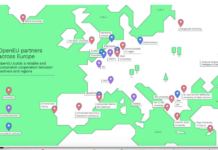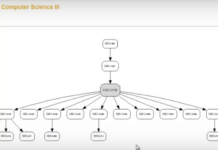Wright, C., Dhanarajan, G. and Reju, S. (2009) Recurring Issues Encountered by Distance Educators in Developing and Emerging Nations IRRODL, Vol. 10, No. 1
I don’t know how I missed this in February, but this is essential reading for anyone contemplating using e-learning or online learning in less economically advanced countries, by three experienced and prestigious authors (Clayton Wright was for many years head of the educational technology unit at Grant McEwan College, Edmonton, Canada and is now an international consultant, Dhanarajan is a former President of the Commonwealth of Learning and now President of Wawasa Open University in Malaysia, and Sunday Reju is from the National Open University of Nigeria).
It is sufficiently hard-nosed to begin by saying:
Online learning is attractive to institutions that want to be perceived as being progressive; however, establishing online programs may not be the wisest use of scarce resources. It may be better to use the limited funds to encourage greater school attendance, ensure students are well fed, and/or hire more tutors.
However, while this paper doesn’t flinch from the hard realities of online learning in less economically advanced and developing countries, it is an optimistic paper in suggesting practical solutions and strategies and in identifying areas where online learning can succeed despite the difficulties.
To give some idea of the scope of the article, here are some of the headings, all of which are treated in sufficient depth to provide strong guidelines for action:
- Developing a Sound Rationale and Vision for the Distance Education Initiative
- Recognizing that Technology is only One Component of the Educational Transformation
- Addressing the Lack of Infrastructure and the Cost of Bandwidth
- Obtaining Equipment when Funds are Limited
- Countering Cultural Imperialism and Addressing Cultural Diversity
- Dealing with Limited Resources
- Placing greater emphasis on quality resources
- Recognizing Those who are Likely to Succeed and Addressing Student Needs
- Dealing with Faculty Concerns
- Accessing up-to-date educational resources
- Implementing mobile learning.
This is certainly the best paper I have read for some time on online learning in developing countries.









 Dr. Tony Bates is the author of eleven books in the field of online learning and distance education. He has provided consulting services specializing in training in the planning and management of online learning and distance education, working with over 40 organizations in 25 countries. Tony is a Research Associate with Contact North | Contact Nord, Ontario’s Distance Education & Training Network.
Dr. Tony Bates is the author of eleven books in the field of online learning and distance education. He has provided consulting services specializing in training in the planning and management of online learning and distance education, working with over 40 organizations in 25 countries. Tony is a Research Associate with Contact North | Contact Nord, Ontario’s Distance Education & Training Network.

